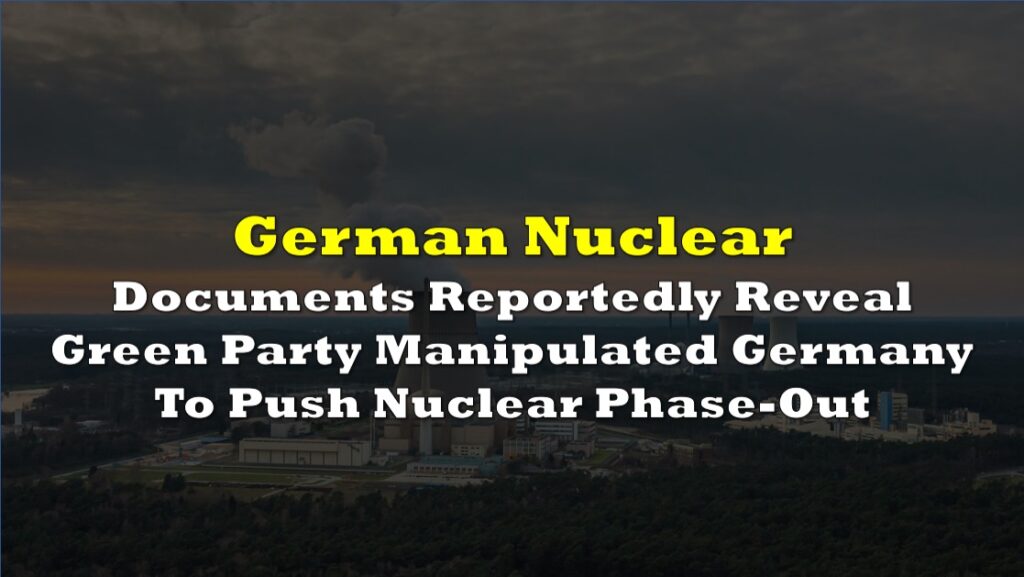In a landmark development, Germany’s far-right party, Alternative for Germany (AfD), has secured a historic victory in the parliamentary election of the eastern state of Thuringia. This marks the first time since the end of World War II that a far-right party has achieved electoral success at the state level, signaling a significant shift in the country’s political dynamics and raising alarm bells about the resurgence of nationalist and extremist sentiments in Europe’s largest economy.
The AfD emerged as the strongest party in Thuringia’s recent state election, capturing 32.8% of the vote according to preliminary results. This significant gain underscores the party’s growing appeal among voters, particularly in Germany’s eastern regions, where economic disparities, cultural differences, and historical contexts have created fertile ground for nationalist ideologies.
In neighboring Saxony, the AfD also demonstrated formidable strength by securing 30.6% of the vote, positioning itself as a close second to the traditionally dominant Christian Democratic Union (CDU). These outcomes not only reflect the party’s expanding influence but also highlight the waning support for Germany’s mainstream political entities, including Chancellor Olaf Scholz’s center-left Social Democratic Party (SPD), which suffered considerable losses, relegating it to a distant fifth place in both states.
The AfD’s co-leader, Alice Weidel, heralded the results as a profound indictment of the current federal government, stating that the outcomes represent a “requiem” for Scholz’s coalition and casting doubt on its ability to govern effectively.
“The people have spoken clearly; they are tired of the same failed policies and demand change,” Weidel asserted during a post-election address.
For the AfD, which started as a fringe party just over a decade ago, this victory signals its transformation into a major political force capable of disrupting the mainstream parties that have dominated Germany’s postwar politics.
BREAKING: Alternative for Germany (AfD) wins parliamentary election in German state of Thuringia, first win by a far-right party since World War II – dpa
— BNO News (@BNONews) September 1, 2024
Fueling AfD’s rise
To understand how the AfD achieved this historic victory, we need to examine the socioeconomic and political factors that have allowed far-right populism to flourish in Germany, particularly in the east.
The AfD was founded in 2013 in response to the eurozone debt crisis. Initially, its platform focused on economic grievances, particularly the bailout of struggling southern European countries like Greece. However, the party’s rise to prominence came in 2015 when then-Chancellor Angela Merkel made the controversial decision to open Germany’s borders to over one million refugees, many fleeing civil war in Syria. While Merkel’s decision won her praise internationally, it sparked backlash at home, especially in Germany’s economically depressed east.
“Germany has become a country without borders, where anyone can come in and we do nothing about it,” said Weidel. Her statements reflect a widespread belief among AfD supporters that Merkel’s refugee policy has weakened Germany’s national security and strained its social fabric.
Eastern Germany, in particular, has been fertile ground for these sentiments. The region, once part of communist East Germany, has struggled with higher unemployment, lower wages, and slower economic growth compared to the wealthier western states. These economic challenges have contributed to a sense of neglect and abandonment by the federal government, creating a fertile environment for populist rhetoric.
The contentious issue of immigration has been central to the AfD’s platform and electoral strategy. In regions like Thuringia and Saxony, concerns over cultural integration, security, and competition for resources have been particularly pronounced. The recent tragic incident in Solingen, where a Syrian man fatally stabbed three people, further inflamed anti-immigrant sentiments and bolstered the AfD’s narrative that current immigration policies compromise national security.
Weidel, capitalizing on this outrage, pinned the blame squarely on the government’s immigration policies. “Instead of racking our brains over the various models of knife bans, we must finally tackle the problem at its roots. Migration change immediately,” she said, channeling the fears and frustrations of voters who feel that their safety has been compromised by unchecked immigration.
This anti-immigrant sentiment resonates strongly in eastern Germany, where many communities feel overwhelmed by the cultural and demographic changes brought about by immigration. A recent poll conducted by Die Zeit revealed that 72% of AfD voters in Thuringia and Saxony view immigration as their top political concern, citing it as a threat to both national identity and personal safety.
During the election campaign, the AfD capitalized on these fears by advocating for stringent immigration controls, immediate deportation of illegal immigrants, and prioritization of native Germans in social and economic policies.
Johannes Kiess, a sociologist specializing in far-right extremism at the University of Leipzig, explained the appeal of the AfD in these areas. “There’s a much more anti-political sentiment in East Germany, which has its roots in the transformative years of the 1990s after the collapse of communism,” Kiess said. “Mainstream parties perform less well in the east, creating space for anti-establishment parties like the AfD.”
Heimat
One of the fundamental drivers behind the AfD’s ascendancy is the persistent economic inequality between Germany’s eastern and western regions. Despite decades of reunification efforts, the east continues to lag in terms of employment opportunities, wage levels, and infrastructure development. This economic stagnation has bred widespread frustration and a sense of neglect among eastern Germans, who feel that their concerns and hardships are overlooked by the political establishment centered in Berlin.
The AfD has adeptly tapped into this discontent by positioning itself as the champion of the “forgotten” and “marginalized,” promising to revitalize the eastern economy through protectionist policies, investment in local industries, and opposition to globalization trends that are perceived to favor western elites.
The party has also successfully tapped into a growing desire for national pride, a sentiment that is particularly strong in Thuringia, where Björn Höcke, the party’s controversial lead candidate, ran his campaign on a platform centered around “Heimat” (homeland). Höcke, who has been convicted for using Nazi slogans, has openly criticized what he sees as Germany’s obsession with historical guilt, advocating for a version of patriotism untainted by the atrocities of the past.
“Yes to freedom, yes to the community, yes to the youth, yes to the future, yes to our Heimat, Thuringia and Germany,” Höcke declared during a campaign rally in Erfurt. His rhetoric appeals to voters who are tired of the mainstream parties’ cautious approach to national pride and who long for a sense of belonging that is rooted in traditional German values.
This focus on national identity has played well in eastern Germany, where many voters feel disconnected from the federal government and marginalized by the rapid changes in German society. “The AfD is the only alternative we have left here in Germany,” said Kevin Flurschutz, a 21-year-old AfD supporter in Thuringia.
The erosion of trust in established political parties has also significantly contributed to the AfD’s success. Many voters perceive the SPD, CDU, and other mainstream parties as disconnected from everyday realities and ineffective in addressing pressing issues such as economic insecurity, social welfare, and public safety.
Scholz’s coalition government has faced criticism over its handling of economic challenges, particularly amid global uncertainties and the economic fallout from the COVID-19 pandemic. Policies perceived as prioritizing international commitments over domestic needs have alienated sections of the electorate, creating an opening for the AfD to present itself as a credible alternative that prioritizes national interests.
Political analysts note that the SPD’s failure to effectively communicate and implement policies that resonate with the concerns of eastern Germans has resulted in a vacuum that the AfD has been quick to fill. The party’s populist rhetoric and promises of radical change have struck a chord with voters disillusioned by what they see as years of political stagnation and unfulfilled promises.
The historical and cultural landscape of eastern Germany plays a pivotal role in understanding the AfD’s appeal. Decades under communist rule have left a legacy of skepticism towards centralized authority and a preference for strong, decisive leadership. Additionally, the rapid and often tumultuous transition to a market economy post-reunification led to social upheaval, job losses, and a sense of cultural displacement for many eastern Germans.
This backdrop has fostered a climate where nationalist and anti-establishment sentiments can thrive. The AfD’s messaging, which often includes critiques of globalization, European Union policies, and perceived erosion of traditional values, resonates deeply within this context, offering a sense of reclaiming agency and identity.
Reactions
The AfD’s electoral victories have elicited strong reactions from across the political spectrum, both within Germany and internationally. Scholz expressed profound concern over the results, labeling them as “bitter” and a threat to the democratic fabric of the nation.
“The AfD is damaging Germany. It is weakening the economy, dividing society, and ruining our country’s reputation,” he said.
He called upon all democratic parties to uphold a “cordon sanitaire” against the AfD, urging them to exclude the party from any governing coalitions at the state level. The European principle aims to isolate far-right and extremist parties from political power.
“We cannot allow extremist forces to dictate the direction of our country. It is imperative that democratic values and principles are defended vigorously,” Scholz stated in a press conference following the election results.
The CDU, while also experiencing setbacks, faces a critical decision on whether to maintain its longstanding policy of refusing cooperation with the AfD or to reconsider alliances in the face of shifting political sands. Some factions within the CDU advocate for a pragmatic approach to governance, while others warn that any collaboration with the far-right would undermine the party’s core values and legitimacy.
Internationally, European leaders have voiced apprehension over the implications of the AfD’s rise for regional stability and the future of the European Union. France’s President, Emmanuel Macron, emphasized the need for vigilance against the spread of extremist ideologies that threaten the unity and democratic foundations of Europe.
“The resurgence of far-right movements is a challenge that we must confront collectively, reinforcing our commitment to the principles of tolerance, diversity, and human rights,” Macron commented during a recent EU summit.
Human rights organizations and Jewish communities have also expressed alarm, citing the AfD’s history of downplaying the Holocaust and employing nationalist rhetoric reminiscent of Germany’s darkest periods. The Central Council of Jews in Germany issued a statement condemning the election results, warning of a “dangerous normalization of extremist views” in mainstream politics.
Germany’s political future
The AfD’s success in Thuringia and Saxony is likely to have far-reaching consequences for German politics, and the effects may ripple throughout Europe. With federal elections scheduled for 2025, the AfD’s strong showing could herald a broader rightward shift in German politics. If recent polls are any indication, the AfD could become the second-largest party in the Bundestag, displacing the SPD and potentially challenging the centrist coalition that has governed Germany for decades.
The political fragmentation evident in these elections suggests that the AfD’s rise will not be easily contained. The party has successfully captured the frustrations of voters who feel left behind by globalization, economic stagnation, and immigration. As Kiess noted, the mainstream parties’ failure to address these concerns has left a vacuum that the AfD has eagerly filled.
“Twenty or 30 years ago, we would have said, ‘This is a neo-Nazi, a fascist, and you cannot vote for a guy like that.’ But people don’t care anymore,” Kiess said.
The AfD’s victory also reflects broader trends across Europe, where populist and nationalist movements have gained ground in countries like France, Italy, and Hungary. These movements, while often dismissed as fringe elements, have become increasingly mainstream, posing a direct challenge to the liberal democratic values that have underpinned European integration since World War II.
The prospect of the AfD wielding greater influence raises concerns about the potential rollback of progressive policies and a resurgence of isolationist and nationalist agendas. It also poses critical questions about the resilience of Germany’s post-war democratic institutions and the country’s ability to confront and overcome the divisive forces of extremism.
Moreover, the AfD’s rise may embolden similar movements across Europe, contributing to a broader pattern of populist and nationalist resurgence that could strain the cohesion and collaborative frameworks of the European Union. Issues such as refugee resettlement, economic cooperation, and collective security may become increasingly contentious, challenging the EU’s capacity to navigate complex transnational challenges effectively.
In 2025, Scholz is expected to seek re-election and will likely face competition from Friedrich Merz, leader of CDU, who has adopted a more conservative stance on immigration, signaling a shift from the party’s moderate policies under Merkel. The Greens, led by Annalena Baerbock, and the liberal Free Democratic Party (FDP), led by Christian Lindner, are also key players, though both have struggled to maintain voter support amid economic concerns and the energy crisis.
The AfD, emboldened by its recent successes, is positioning itself as the main opposition, potentially challenging the established parties with its nationalist and anti-immigrant platform. This election will be crucial in determining the direction of Germany’s domestic and foreign policy, with significant implications for the future of European politics.
Information for this briefing was found via CNN, NPR, and the sources mentioned. The author has no securities or affiliations related to this organization. Not a recommendation to buy or sell. Always do additional research and consult a professional before purchasing a security. The author holds no licenses.









